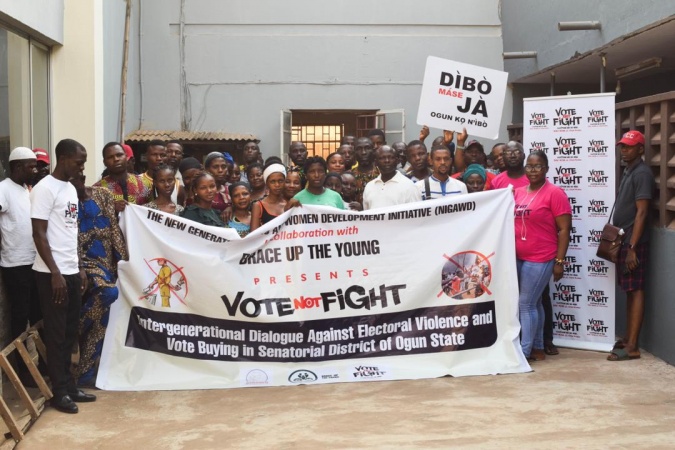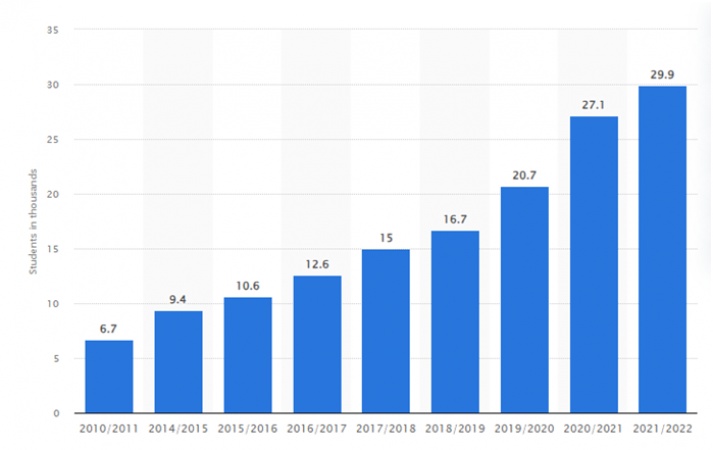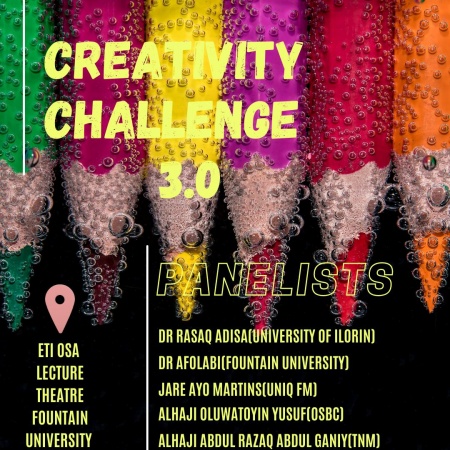Naira Abuse: What Does The Law Say?
Posted by Ahmed Iyanda | 11 months ago | 1,182 times

On Thursday, April 4, 2024, the Economic and Financial Crimes Commission (EFCC) announced the arrest of Lagos socialite and crossdresser, Idris Okuneye porpularly known as Bobrisky, for abusing naira notes. To this effect, the crossdresser was sentenced to six months in jail without the option of a fine.
Justice Abimbola Awogboro of the Federal High Court in Lagos sentenced the controversial cross-dresser for Naira abuse, on Friday.
Mr Awogboro, in his ruling, said Bobrisky’s sentence would serve as a lesson for others from abusing the Naira.
He held that “The act of mutilating the Naira notes has become a menace, which has continued to damage the country’s image. “Enough of people mutilating and tampering with our currencies. It has to stop. His will serve as a deterrent to others.”
The charge against Bobrisky marked FHC/L/244c/2024 comprised four counts of naira abuse and two counts of suspected money laundering.
Two counts (counts five and six), which bordered on money laundering, were struck out by the judge, leaving counts one to four.
In the first count, Bobrisky was alleged to have tampered with N400,000 by spraying the same while dancing at a social event at the IMAX Circle Mall, Lekki, Lagos on 24 March.
The offence is contrary to and punishable under Section 21(1) of the Central Bank Act 2007.
In count two, Bobrisky, between July and August 2023 at Aja Junction, Ikorodu, is said to have tampered with another sum of N50,000 by spraying the same at a social event while dancing.
In count three, Bobrisky, in December 2023 at White Steve Event Hall, Ikeja also sprayed and tampered with another sum of N20,000 while dancing.
Count four accused the cross-dresser of spraying and tampering with another sum of N20,000 while dancing at another event in Oniru, Victoria Island.
Unfortunately, many Nigerians do not know that spraying naira notes at weddings or funerals could land them in trouble.
What does the law say?
The CBN regards spraying of naira notes as “abusing the country’s symbol of sovereignty.”
This sentiment is strengthened by Section 21 of the CBN Act which makes it a crime to tamper with or deface naira notes.
According to the section, “A person who tampers with a coin or note issued by the Bank is guilty of an offence and shall on conviction be liable to imprisonment for a term not less than six months or to a fine not less than N50,000 or to both such fine and imprisonment.”
Section 21(3) of the CBN Act specifically forbids Nigerians to spray or throw the national currency at social occasions.
The section says, “For the avoidance of doubt, spraying of, dancing or matching on the Naira or any note issued by the Bank during social occasions or otherwise howsoever, shall constitute an abuse and defacing of the Naira or such note and shall be punishable under subsection (1) of this section.”
The Clean Notes Policy of the Apex Bank was implemented with the aim of enhancing the visual appeal and durability of the banknotes in circulation, as stated on the official website of the apex bank.
According to the CBN, the objective is to guarantee that the naira banknotes in circulation maintain a high standard of quality, enabling them to be easily processed and accepted by the general public. It should be noted that The CBN is responsible for the issuance of the Naira and kobo (Sections 17, 18 and 19).
Below are the ways you can abuse the naira
- Spraying: It is against the law to spray the Naira banknotes at occasions.
- Writing: It is against the law to write on banknotes.
- Stapling: It is against the law to staple the banknotes as the pins can cause corrosion of the banknotes.
- Tearing: It is also against the law to tear the banknotes
- Soiling: It is against the law to dance/stamp on the Naira banknotes. Do not stain the banknotes with oil or ink, as this is also a form of defacing.
- Sale: It is against the law to sell currency banknotes.
- Mutilation: A person who tampers with the Naira note or coin is guilty of an offence, punishable by law (CBN Act Section 21).
- It is against the law to reject the Naira (Section 20 subsection 5).
Spraying of Money vs Cultural Tradition
Spraying money at public events has found its place in cultural tradition in Nigeria. It’s seen as a gesture of goodwill and even a way of showing appreciation to the celebrants.
Spraying of the naira issued by the bank during social occasions or otherwise constitutes an abuse and defacing of the naira.
Spraying includes adorning, decorating or spraying anything or any person or any part of any person or the person of another with naira notes or coins or sprinkling or sticking of the naira notes or coins in a similar manner regardless of the amount, occasion or the intent.
Ways To Avoid Mutilating The Naira
However, to avoid Naira Mutilation and abuse of the Naira, it is advisable to embrace digital banking and online payment as another way of avoiding the risk of defacing the naira notes at parties.







